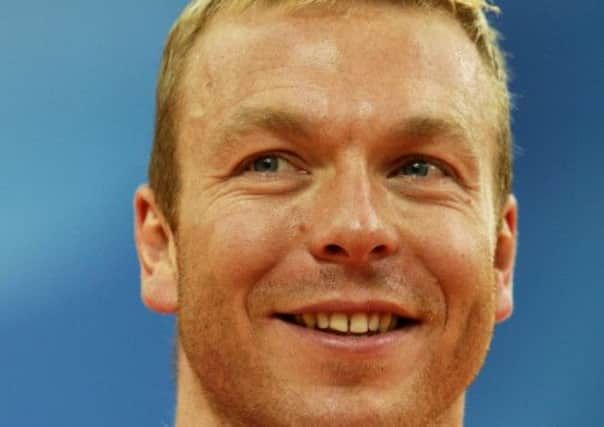When the going is good for stars making a graceful exit


THIS time there were no tears. Last August, during that great golden summer of British sport, Sir Chris Hoy was unable to keep his emotions in check as he stood on the podium having just won a thrilling race in the keirin to claim his sixth Olympic gold medal.
To be fair there weren’t many dry eyes in the velodrome after yet another day of high drama saw Sir Chris overtake Sir Steve Redgrave to become Britain’s most celebrated ever Olympian.
Advertisement
Hide AdAdvertisement
Hide AdBut all good things must come to an end and speaking at a news conference in Edinburgh yesterday, Hoy announced his retirement from cycling. The 37 year-old, who won 11 world titles during a glittering 19-year career, had spoken previously about competing at the 2014 Commonwealth Games in Glasgow, but has instead decided to quit the sport he loves.
“It is not a decision I took easily or lightly but I know it is the right decision,” he said. “Nothing would give me more pleasure than going to Glasgow but I don’t want to be there for the numbers.”
He went on: “To go on for another year would be one year too far. I don’t want to turn up to wave to fans and get a tracksuit. I wanted to get a medal for Scotland and because I didn’t think I could do that, I wanted someone else to take my place.” He finished by saying: “I’m happy, I’m satisfied. There is no lingering doubt. I’ve done everything I can.”
Hoy’s achievements will no doubt enter sporting folklore but perhaps so, too, should the manner with which he retired.
Advertisement
Hide AdAdvertisement
Hide AdThere’s a lot to be said for knowing when to go but is there really an art to leaving the stage gracefully? Julian Rawel, director of executive education at Bradford University’s school of management, believes so. “There is an art to it and that art is about having a plan and something else to go on to,” he says.
He points to Sir Steve Redgrave as a good example. “After he finished his penultimate Olympics he famously said that anyone who caught him in a boat again had his permission to shoot him. But what did he do next? He got straight back into a boat. But since he finally retired he’s become a great sporting ambassador and you can imagine Chris Hoy doing a similar kind of role.”
Rawel says Hoy’s decision to retire while he’s still basking in the glow of Olympic glory means he will be remembered fondly. “By retiring when he’s at the top people’s memories are of him being number one.”
However, many sports stars miss the heat of battle, the team camaraderie and the adulation of fans and this can be a difficult void to fill. But sporting comebacks rarely end in success. Former world champion Ricky Hatton struggled to come to terms with life after boxing and made a failed comeback attempt last year before finally hanging up his gloves.
Advertisement
Hide AdAdvertisement
Hide AdThere are those, too, like Paul Gascoigne, who continue playing way past their prime in an effort to keep going for as long as possible. But there are no shortage of cautionary tales out there, like that of Muhammad Ali. He finally retired from the ring in 1981 and three years later was diagnosed with Parkinson’s disease. It’s hard to say whether his illness was caused by the repeated blows to the head he took, but there’s no doubt that his fans wished he’d retired much earlier.
It’s not just sportsmen and women, though, who face this dilemma. Rawel says there are obvious dangers and pitfalls in staying on too long, whether you’re a footballer or a prime minister. “In business, chief executives are moved on when it’s felt they’ve stayed too long and it’s a similar situation in politics. If you look at Margaret Thatcher she should have perhaps done what Tony Blair did and gone at a time of her choosing. We remember her now for many different things but the last memory is of the person being booted out of Number 10.”
The trappings of power, not to mention the wealth, can be hard to resist. But not retiring or stepping down at the right time can have wider implications. “People can be too scared to move on or they don’t want to relinquish power, but this can leave behind a difficult legacy,” he says.
“Sometimes you need to go for yourself and sometimes you have to go for the good of your own organisation, because if you stay too long it can cause difficulties and the more invincible you think you are, the harder you are to replace.”
Advertisement
Hide AdAdvertisement
Hide AdTime, though, catches up with everyone, no matter how talented they are. It takes skill and determination to reach the top of your field, but perhaps the real trick is knowing when to call it a day.